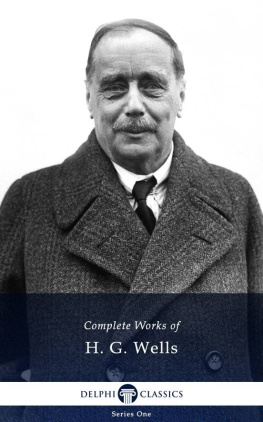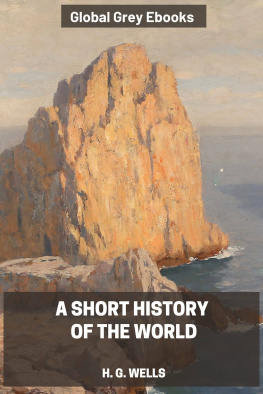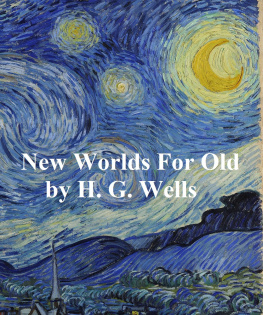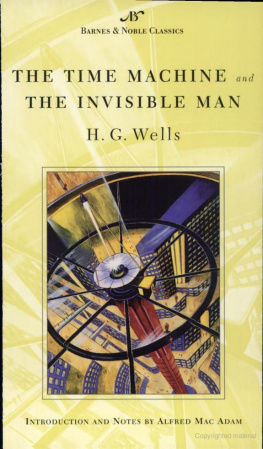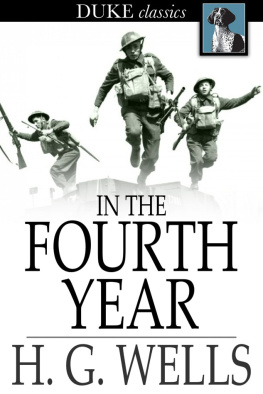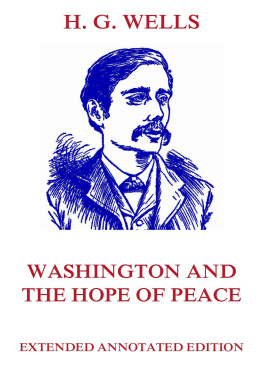H. G. Wells - War of the Worlds (Barnes & Noble Classics Series)
Here you can read online H. G. Wells - War of the Worlds (Barnes & Noble Classics Series) full text of the book (entire story) in english for free. Download pdf and epub, get meaning, cover and reviews about this ebook. publisher: Barnes & Noble, genre: Science. Description of the work, (preface) as well as reviews are available. Best literature library LitArk.com created for fans of good reading and offers a wide selection of genres:
Romance novel
Science fiction
Adventure
Detective
Science
History
Home and family
Prose
Art
Politics
Computer
Non-fiction
Religion
Business
Children
Humor
Choose a favorite category and find really read worthwhile books. Enjoy immersion in the world of imagination, feel the emotions of the characters or learn something new for yourself, make an fascinating discovery.

- Book:War of the Worlds (Barnes & Noble Classics Series)
- Author:
- Publisher:Barnes & Noble
- Genre:
- Rating:3 / 5
- Favourites:Add to favourites
- Your mark:
- 60
- 1
- 2
- 3
- 4
- 5
War of the Worlds (Barnes & Noble Classics Series) : summary, description and annotation
We offer to read an annotation, description, summary or preface (depends on what the author of the book "War of the Worlds (Barnes & Noble Classics Series) " wrote himself). If you haven't found the necessary information about the book — write in the comments, we will try to find it.
War of the Worlds (Barnes & Noble Classics Series) — read online for free the complete book (whole text) full work
Below is the text of the book, divided by pages. System saving the place of the last page read, allows you to conveniently read the book "War of the Worlds (Barnes & Noble Classics Series) " online for free, without having to search again every time where you left off. Put a bookmark, and you can go to the page where you finished reading at any time.
Font size:
Interval:
Bookmark:
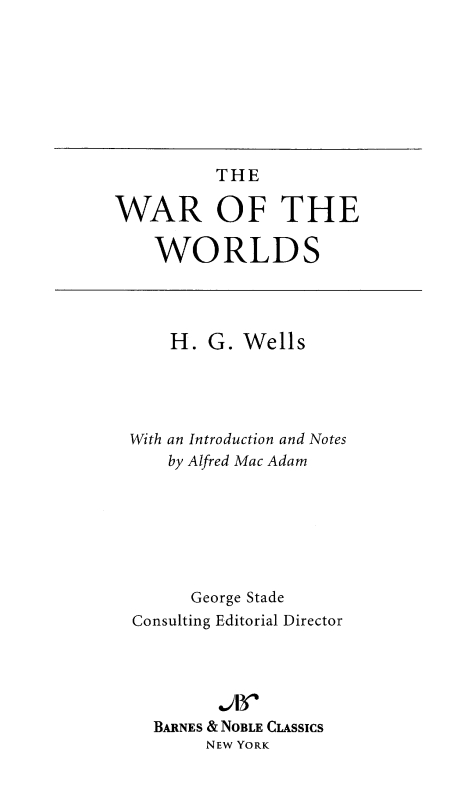
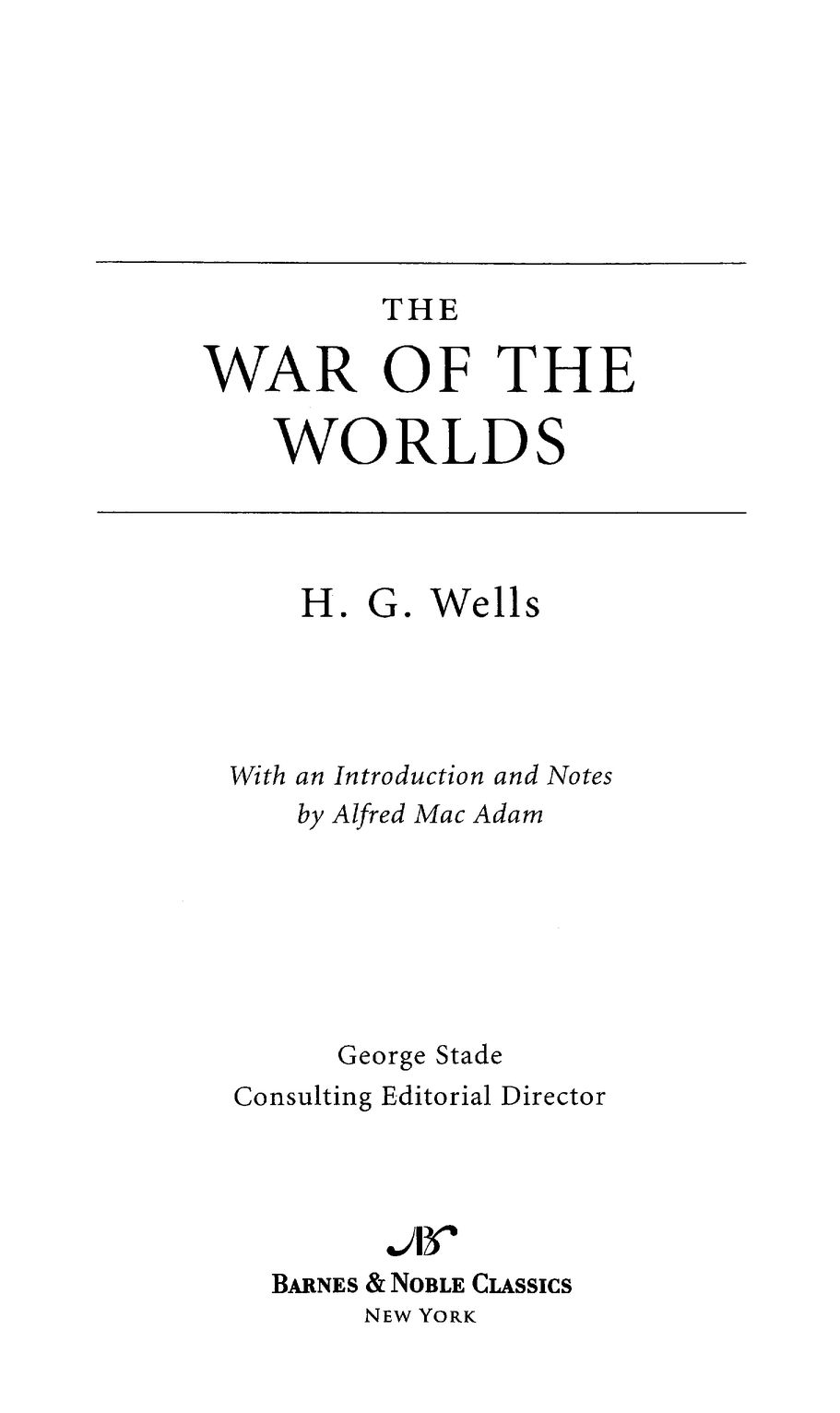
War of the Worlds
| 1866 | Herbert George Wells, known as a child as Bertie, is born on September 21 in Bromley, Kent. His pious parents, who had once been domestic servants, are often on the brink of financial ruin. Berties father, now owner of a china shop, is an excellent cricket player but a bad businessman. |
| 1871 | Lewis Carrolls Through the Looking Glass and What Alice Found There is published. The first books of George Eliots Middlemarch are published. A British Act of Parliament legalizes labor unions. The Royal Albert Hall of Arts and Sciences opens in London. |
| 1879 | Wellss mother takes work as a housekeeper at a nearby estate called Uppark, where she had served as a ladys maid before her marriage. Bertie lives with her at Uppark, where he reads copiously from the library. |
| 1880 | Berties mother has him become an apprentice to a draper (a dealer in cloth and dry goods). He finds the work unsatisfying yet stays with this position and another for a pharmacist for the next two years. |
| 1882 | Charles Darwin dies. |
| 1883 | Bertie dislikes retail work and takes a position as an assistant teacher at Midhurst Grammar School. Robert Louis Stevensons Treasure Island is published. |
| 1884 | Wells wins a scholarship and enters the Normal School of Science in the South Kensington section of London. His mentor, the eminent biologist and proponent of Darwinism T. H. Huxley, deeply influences him, introducing him to evolutionary science and skepticism about human progress. |
| 1887 | The first Sherlock Holmes story, A Study in Scarlet, by Sir Arthur Conan Doyle, is published. |
Font size:
Interval:
Bookmark:
Similar books «War of the Worlds (Barnes & Noble Classics Series) »
Look at similar books to War of the Worlds (Barnes & Noble Classics Series) . We have selected literature similar in name and meaning in the hope of providing readers with more options to find new, interesting, not yet read works.
Discussion, reviews of the book War of the Worlds (Barnes & Noble Classics Series) and just readers' own opinions. Leave your comments, write what you think about the work, its meaning or the main characters. Specify what exactly you liked and what you didn't like, and why you think so.

